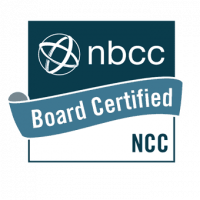What Are The Top 6 Reasons To Seek Family Therapy?

Free Family Therapy Consultation
Book a free 15-minute consultation with a family therapist who understands and supports your needs. Take the first step towards transformative change now.
Table of contents
Families are special and unique, no two exactly alike. Especially when we look further into nuclear or extended families. For example, a nuclear family often is 1 or 2 parents and their kids. An extended family includes grandparents, aunts, uncles, and cousins. A biological family is the people you are related to by blood. A foster family is a family that takes care of kids whose parents can’t take care of them. And a family of choice is a group of people who choose to be together because they love and support each other—this could be friends or chosen relatives. What all these families have in common is that they provide love, support, and security for their members.
According to the American Psychological Association, family therapy is one of the most powerful tools for helping families work through their difficulties. Whether it’s a major life change, a traumatic event, or perhaps just to ensure that communication and relationships remain strong, family therapy can help parents and children build stronger connections and foster understanding within the family unit.
Does this sound familiar in your family?
When families face escalating conflicts and frequent disagreements, seeking therapy becomes a crucial step towards addressing these challenges. These conflicts have the potential to disrupt daily life and contribute to mental health issues such as anxiety and depression. While a certain level of disagreement is normal and healthy, unresolved conflicts that persist may indicate the need for family therapy. Through a supportive environment, family therapy enables open communication, understanding, and the development of effective coping strategies. By addressing underlying dynamics, therapy facilitates the cultivation of healthier relationships, improved communication, and the ability to navigate conflicts constructively. With the guidance of a qualified therapist, families can work towards finding resolutions, fostering growth, and nurturing a more harmonious family unit.
Family Therapy Starts Here

MS, LPCC, LPC, NCC
Therapist | Licensed Professional Clinical Counselor | Nationally Certified Counselor
With over 15 years of experience as a family therapist, I specialize in guiding families towards healing and stronger relationships. Through a personalized approach focused on trust, resilience, and emotional intelligence, I can help you navigate family dynamics and foster a healthier mindset.
Schedule your first session today for a brighter, more fulfilling family life.
Recognizing Symptoms that Need Therapy
Family issues can have diverse emotional and psychological consequences, with each individual responding in their own unique way. However, certain signs are commonly associated with the need for therapy:
Strained Relationships and Conflict: When you find yourself engaged in frequent conflicts with important family members, it becomes crucial to prioritize dialogue and reconciliation. Addressing these issues can uncover deeper underlying problems that may cause distress and impact other connections. Parental discord, for instance, can leave both parents emotionally vulnerable, affecting their interactions with children and partners. Disagreements over parenting approaches can also disrupt effective communication within the entire family.
Persistent Worry and Anxiety: Constantly feeling overwhelmed by worries related to your family can have detrimental effects on your mental well-being over time. Taking proactive steps to address and manage these concerns becomes essential for maintaining emotional balance.
Excessive Stress and Physical Symptoms: Familial concerns such as financial worries or unresolved conflicts within the household often manifest in physical symptoms like trouble sleeping, muscle tension, headaches, and digestive issues. These physical manifestations can be indicative of underlying emotional struggles that may be challenging to resolve independently.
Depression: Unexpressed feelings of tension, discord, or alienation within the family dynamic can lead to a sense of sadness and despair, contributing to symptoms of depression.
Self-Esteem Issues: Feeling insecure and threatened within a valued relationship can significantly impact your self-worth and overall well-being, resulting in self-doubt and negative self-perception.
Recognizing these symptoms is crucial in understanding when seeking therapy for family issues is necessary. Addressing these challenges with the support of a qualified therapist can help promote healing, improve communication, and foster a healthier family environment.
Common Types of Family Issues
Every family is unique, facing a distinct set of struggles and challenges. These issues require families to come together, working towards resolution and building a foundation of love and support. While family issues encompass a wide range of situations, some types are more commonly observed. Let’s explore a few examples:
Abuse, Arguing, and Violence: When emotional or physical harm occurs within a family, it constitutes toxic abuse, which is a highly dangerous form of family conflict. Immediate help should be sought to ensure the safety of all involved parties.
Raising Children: The relationship between parents and their children plays a significant role in early development, making it unsurprising that issues often arise within this dynamic. These struggles can occur not only within biological families but also extend to foster families and adoptive families.
Breakdown of Communication: Difficulties such as feeling unheard, a lack of understanding, and challenges expressing oneself are common communication problems within family relationships.
Stress of Managing Family or Personal Matters: The responsibilities of caring for children, supporting a family member with an illness, managing financial matters, or looking after elderly parents can create significant stress within the family unit.
Sibling Conflict: Differences in relational styles, competition, and comparison among siblings can often lead to tension and conflict. Various factors contribute to sibling disagreements.
Cultural Differences and Values, including Religion: Families may hold certain expectations for their members, particularly when religious or cultural beliefs are central to family life. When someone deviates from these norms, it often results in discord and disagreements among relatives.
By addressing these common types of family issues in therapy, families can work towards healing, understanding, and finding constructive solutions. Therapeutic interventions provide guidance and support to navigate these challenges and promote healthier family dynamics.
Discovering Effective Solutions for Resolving Family Issues
Having difficulty navigating familial relationships? When faced with stress, problems, or danger in family dynamics, there are several ways to find resolution and maintain your well-being. Here are valuable tips to help you get through tough times:
Seek Readily Available Resources if you are in immediate danger: If you’re experiencing abuse, reach out for help. The National Domestic Violence Hotline at 1-800-799-7233 or TheHotline provides immediate assistance. For concerns about child safety, contact the Childhelp National Child Abuse Hotline at 1-800-422-4453. In times of crisis or thoughts of suicide, support is only a phone call away with the National Suicide Prevention Hotline at 1-800-273-8255.
Therapy is Key: A therapist can offer professional guidance and support through individual, couples’, or family sessions. Finding a therapist who listens and understands your unique situation is crucial in working towards resolution.
Take Notes: Spend time each day reflecting on your thoughts, emotions, and concerns regarding family conflicts or individual problems. Writing them down helps gain clarity and provides a broader perspective on these issues.
Practice Mindfulness: Incorporate meditation and mindfulness techniques into your daily routine. These practices can transform your life, improving focus, reducing stress and anxiety, and enhancing emotional well-being and clarity of thought.
Keep in Touch with Loved Ones: When facing challenges within your family, remember that there are other people in your life who can offer understanding and support. Reach out to friends and loved ones who can provide solace during difficult familial ties.
By implementing these effective strategies, you can navigate familial relationships, address stress, resolve conflicts, and foster healthier dynamics within your family.
Finding the Right Therapist for Your Family's Issues
When seeking psychotherapy to address family issues, you have a range of options available. Some methods involve individual sessions, while others require multiple household members to attend together. Structural Family Therapy, Couples Therapy, Cognitive Behavioral Therapy (CBT), Psychodynamic Therapy, Acceptance and Commitment Therapy (ACT), and Interpersonal Psychotherapy are just a few approaches that can effectively relieve tension within the home.
As you consider potential therapists, asking the following questions can provide insight into their credentials and experience:
- What is your specialization in assisting families with their issues?
- Have you worked with clients similar to us before? How did you support them?
- What is the approximate duration of the therapy sessions?
- Are you affiliated with any professional organizations?
- What is your educational background in this field?
- How many years have you been practicing in this area?
Establishing a comfortable rapport with your therapist is crucial. The therapeutic alliance, which emphasizes a strong connection and alignment of approach, greatly influences the success of your therapy journey. During your initial phone call, assess if there is potential for connection and whether the therapist’s approach resonates with you. It is essential that they listen to and respect your perspectives.
Additionally, consider the therapist’s working style. Do they primarily listen, or do they have a structured session plan? Understanding their therapeutic approaches will help determine the best fit for your needs.
Before scheduling an appointment, honestly ask yourself if you are ready to put in the work . If the answer is yes, rest assured that your journey towards healing and growth has already begun. Keep in mind that therapy costs will vary depending on factors such as location, degree, certification, and experience. Investing in a highly qualified therapist can lead to more efficient and effective healing, ultimately resulting in significant cost savings due to the effectiveness of their treatments.
Commitment from both you and your family is vital for the success of therapy. Ensure that you are willing to actively participate in sessions and engage in the exercises recommended by the therapist. Family therapy requires collective effort and dedication.
Through our family counseling sessions at NorthStar Counseling & Therapy, you will gain invaluable insights into your relationships. From identifying unhealthy patterns to understanding each other’s needs and feelings more deeply, we are here to support you. You no longer have to face these challenges alone.
Get started with therapy for your family today.
At NorthStar Counseling & Therapy, we specialize in offering personalized treatment plans tailored to your specific needs and goals. Our expert guidance will empower you to make lasting changes, leading to a more fulfilling life. Let us accompany you on your journey to wellness and personal growth.

Megan Corrieri
Owner, Clinician, Wife & Mom
Share:













